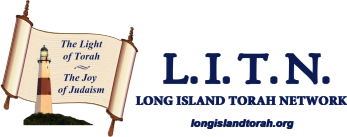Pharaoh has sent the Jews out of Egypt.
The Jews march forth triumphantly, trusting in G-d as they travel into the wilderness; a pillar of cloud guides them by day and a pillar of fire by night. G-d leads the Jews on a circuitous path, doubling back towards Egypt and stopping at the shore of the Red Sea. Pharaoh, interpreting this as a sign of confusion and helplessness, decides to pursue the Jews. The Egyptians race towards the trapped and terrified Jews. G-d instructs Moses to stretch his staff out over the Sea. The sea splits, and the Jews walk onto the now-dry seabed, surrounded by walls of frozen water; the Egyptians follow them. When the Jews are safely on the other side, Moses stretches out his staff once more and the water comes crashing down, drowning the Egyptian oppressors. The Jewish men, led by Moses, and the Jewish women, led by Miriam, celebrate G-d’s wondrous salvation with the Song of the Sea.*1
The Jews travel into the desert. Their provisions run out and they complain of hunger. G-d tells Moses He will rain down “bread from Heaven…so I may test [the Jews, to see whether] they will follow my instruction or not.” The next morning, a mysterious substance falls from Heaven - thin, round, white and tasting like a sweetened pastry [according to Tradition, its taste actually changes to whatever the eater desires]. The Jews call it Manna [Hebrew man], a form of the word for “food.”
The Jews are instructed to collect one Omer [a measure of volume] per day. Some collect more than the prescribed amount, some less; when they arrive home, each discovers that he is holding exactly one Omer. The daily portion of Manna is to be consumed that day; when some try to hoard for tomorrow, the leftovers turn rotten and wormy. On Friday, the Jews discover that they have collected two Omers of Manna. Moses explains that tomorrow is the Sabbath, and the Manna will not fall; G-d is giving them a double portion in advance.*2
G-d instructs Moses to preserve a container of Manna for posterity, so future generations can relive its lessons: sustenance is from G-d, and everyone gets his allotted daily bread; no one will ever receive more or less than his due.*3
The Jews are attacked by the nation of Amalek - descendants of an individual of the same name, a grandson of the evil Esau. Joshua, Moses’ disciple and eventual successor, leads the Jewish army. Amalek is defeated but not destroyed; their spiteful attack on the Jews represents a vicious attempt to dampen the inspiration of the Exodus. G-d declares Amalek the eternal enemy of the Jews, and the G-d whom they represent.
______________________________________________________________________________________________________
1 Recited until today as part of the daily Shacharis service.
2 One of the reasons for serving two Challahs at the Sabbath meal.
3 Centuries later, the prophet Ezekiel shows this container to his contemporaries, encouraging them to dedicate themselves to Torah study and trust in G-d’s sustenance
Click below to open a printable pdf
The Jews travel into the desert. Their provisions run out and they complain of hunger. G-d tells Moses He will rain down “bread from Heaven…so I may test [the Jews, to see whether] they will follow my instruction or not.” The next morning, a mysterious substance falls from Heaven - thin, round, white and tasting like a sweetened pastry [according to Tradition, its taste actually changes to whatever the eater desires]. The Jews call it Manna [Hebrew man], a form of the word for “food.”
The Jews are instructed to collect one Omer [a measure of volume] per day. Some collect more than the prescribed amount, some less; when they arrive home, each discovers that he is holding exactly one Omer. The daily portion of Manna is to be consumed that day; when some try to hoard for tomorrow, the leftovers turn rotten and wormy. On Friday, the Jews discover that they have collected two Omers of Manna. Moses explains that tomorrow is the Sabbath, and the Manna will not fall; G-d is giving them a double portion in advance.*2
G-d instructs Moses to preserve a container of Manna for posterity, so future generations can relive its lessons: sustenance is from G-d, and everyone gets his allotted daily bread; no one will ever receive more or less than his due.*3
The Jews are attacked by the nation of Amalek - descendants of an individual of the same name, a grandson of the evil Esau. Joshua, Moses’ disciple and eventual successor, leads the Jewish army. Amalek is defeated but not destroyed; their spiteful attack on the Jews represents a vicious attempt to dampen the inspiration of the Exodus. G-d declares Amalek the eternal enemy of the Jews, and the G-d whom they represent.
______________________________________________________________________________________________________
1 Recited until today as part of the daily Shacharis service.
2 One of the reasons for serving two Challahs at the Sabbath meal.
3 Centuries later, the prophet Ezekiel shows this container to his contemporaries, encouraging them to dedicate themselves to Torah study and trust in G-d’s sustenance
Click below to open a printable pdf
| parsha_snapshot_beshalach.pdf | |
| File Size: | 293 kb |
| File Type: | |

